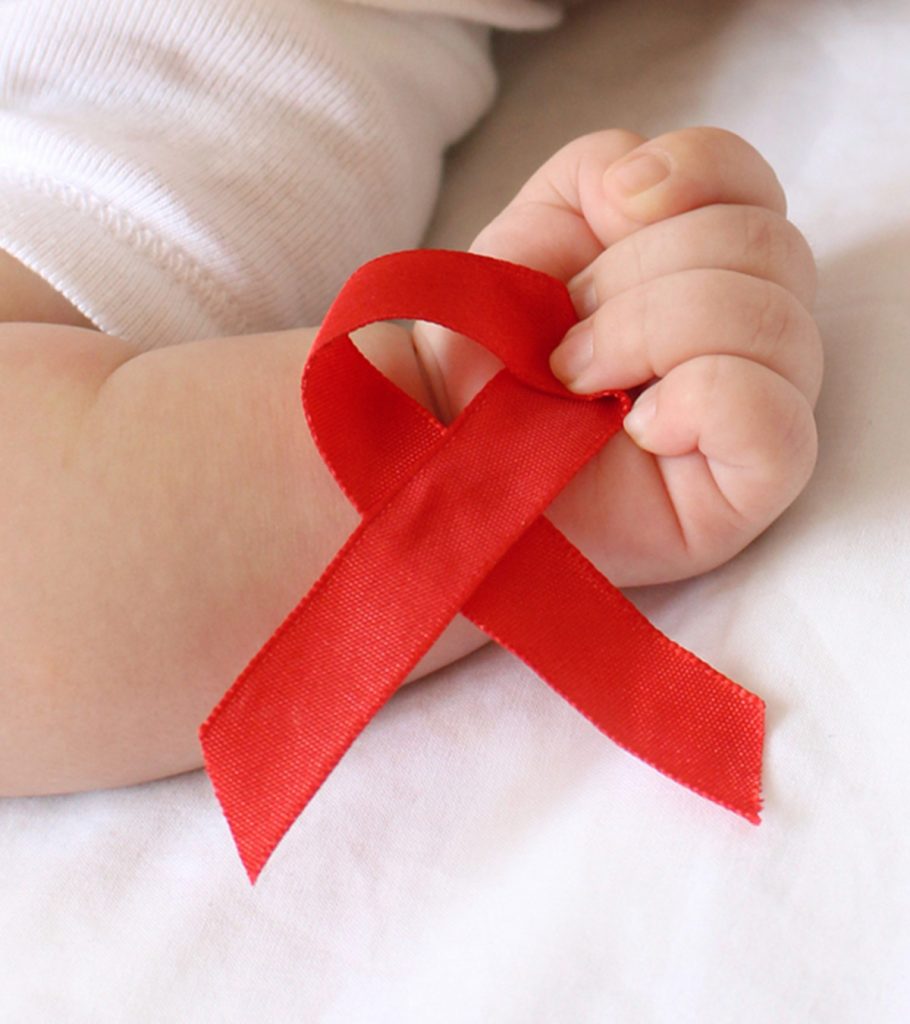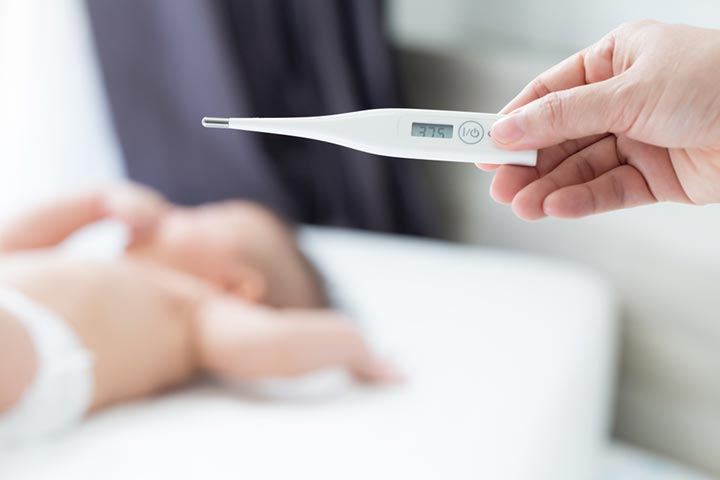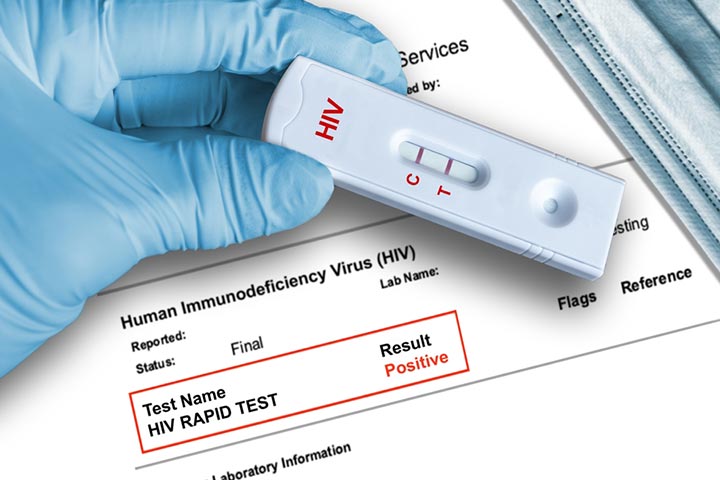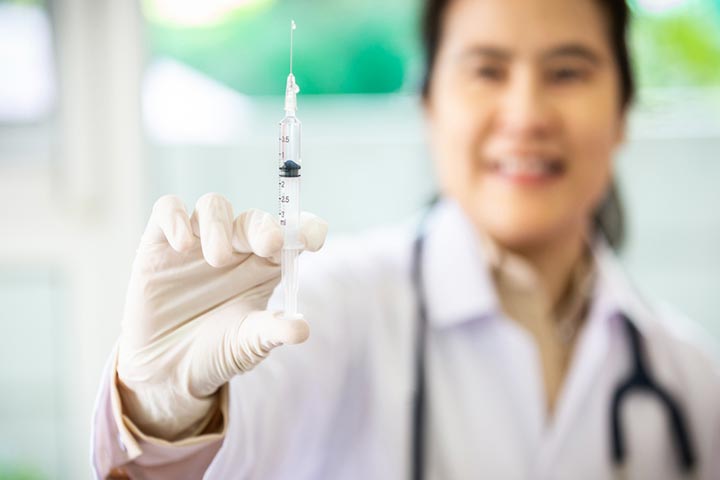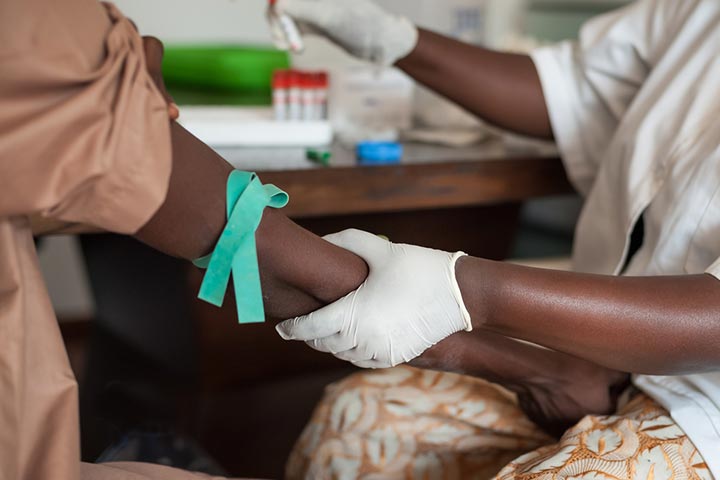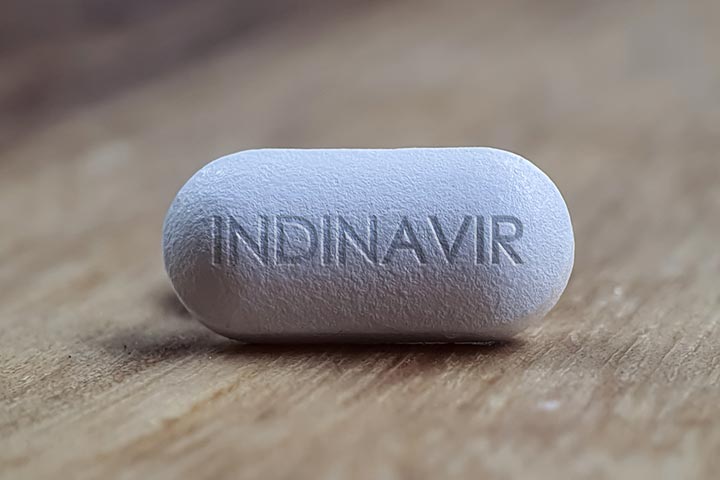Human immunodeficiency virus (HIV) gives rise to AIDS (acquired immunodeficiency syndrome). HIV in babies or Pediatric HIV is also known as congenital HIV or neonatal HIV. The virus may cause opportunistic infections in babies by attacking and weakening their immune system (1) (2).
Babies acquire congenital HIV from their mothers during pregnancy, labor, or breastfeeding. The spread of the disease is called vertical transmission or perinatal transmission of the disease. According to the Centers for Disease Control and Prevention (CDC), out of the 1,061,482 people with HIV diagnoses at the end of 2019, one percent were identified with perinatal HIV. Most HIV infections in babies are caused by vertical transmission (3).
Read this post to learn about signs, causes, diagnosis, management, and prevention of HIV in babies.
Signs Of HIV Infection In Babies
Infants infected with HIV most often do not have symptoms for the initial two to three months. Once the symptoms develop, the way they manifest varies from one baby to the other. Early signs of HIV in babies may include the following (1) (2).
- Lack of energy
- Weight loss and failure to grow
- Frequent and long lasting fevers
- Sweats
- Repeated or persistent yeast infection (candidaiXA yeast genus capable of causing fungal infections in babies) in the mouth
- Inflamed lymph nodes
- Inflamed salivary glands
- Enlarged liver
- Enlarged spleen
- Repeated ear infections
- Repeated sinusitisiXA condition in which the tissues that line the sinus (hollow, air-filled spaces in the skull) get swollen or inflamed
- Repeated upper respiratory tract infections
- Developmental delays
- Diarrhea
- Recurrent herpesiXViral infection marked by the formation of sores and blisters in and around the mouth and genital regions infections
- Recurrent bacterial infections
Diagnosis Of HIV In Babies
Babies born to HIV-infected mothers always have a positive antibody test at birth because the HIV antibody passively transfers across the placenta. Virological testingiXA screening test used to identify HIV infection in infants is essential to confirm the diagnosis. Viral testing for HIV is done in babies at the following ages.
- 14 to 21 days
- One month
- Four months
If two tests come back negative, the infant does not have an HIV infection, and if two tests show positive results, the baby has an HIV infection. Babies who fall under the high-risk category for HIV transmission might be tested before the infant is 48 hours old, followed by testing at the requisite ages (1) (4).
In most cases, the diagnosis of HIV in infants is made within the first five months. Some children may be diagnosed later. CDC noted that about 645 children were diagnosed with HIV between 2014 and 2018. Among these, 200, or 31%, were diagnosed in the first five months. Overall, most children with the virus are diagnosed within 23 months of age in the United States.
Diagnoses of HIV infection among US babies (2014-2018)
Source: ”Diagnoses (ART) is the choice of treatment for HIV/AIDS.
A cesarean section may be advised to reduce the risk of transmission from the birth canal (4). The following treatment plan is followed for babies born to HIV-positive babies (1).
- Infants born to HIV-infected mothers are administered ART drugs within six to 12 hours after birth.
- The doctor may prescribe one or more antiretroviral drugs for six weeks after birth.
HIV-positive women should refrain from breastfeeding their babies. In addition, mothers who are taking HIV medicines should also avoid breastfeeding (1).
According to the Centers for Disease Control and Prevention, all women trying to conceive should get themselves and their partners tested for HIV to ensure maternal health and fetal health. If either of the partners has HIV, the infected partner should take the HIV medicine daily to prevent transmission and stay healthy (5). Today, there are many medical treatments available that slow down the progression of the disease and the rate at which HIV weakens the immune system (4).
Long-Term Outlook For HIV-Positive Infants
Early diagnosis and neonatal care are critical for babies with HIV infection. Babies with HIV infection will need ART for their entire life. ART drugs do not cure the infection but slow down HIV replication, making it easier for the immune system to suppress the virus. The medicines should be taken as prescribed for them to work well. Regular treatment can help most babies with HIV/AIDS live a normal lifespan.
If you are HIV-positive, it is important to take your doctor’s advice before getting pregnant. HIV-positive mothers may transmit the infection to their babies during pregnancy, delivery, or breastfeeding. This infection could gradually progress into AIDS. Preventing viral transmission of HIV infection could protect the babies. In case of any doubt, it is better to consult your doctor and get the much-required guidance on the vaccines and other aspects related to HIV in babies. It is also important to take the best care of yourself after delivery for your baby’s well being.
Key Pointers
- Babies infected with HIV usually have no symptoms for the first two to three months.
- Lack of energy, weight loss, persistent fevers, etc., are a few early signs of HIV infection in babies.
- Babies with HIV need antiretroviral therapy (ART) for their entire life.
An HIV-positive baby from Mississippi has achieved freedom from infection! Witness the incredible tale of optimism and strength in this captivating video.
